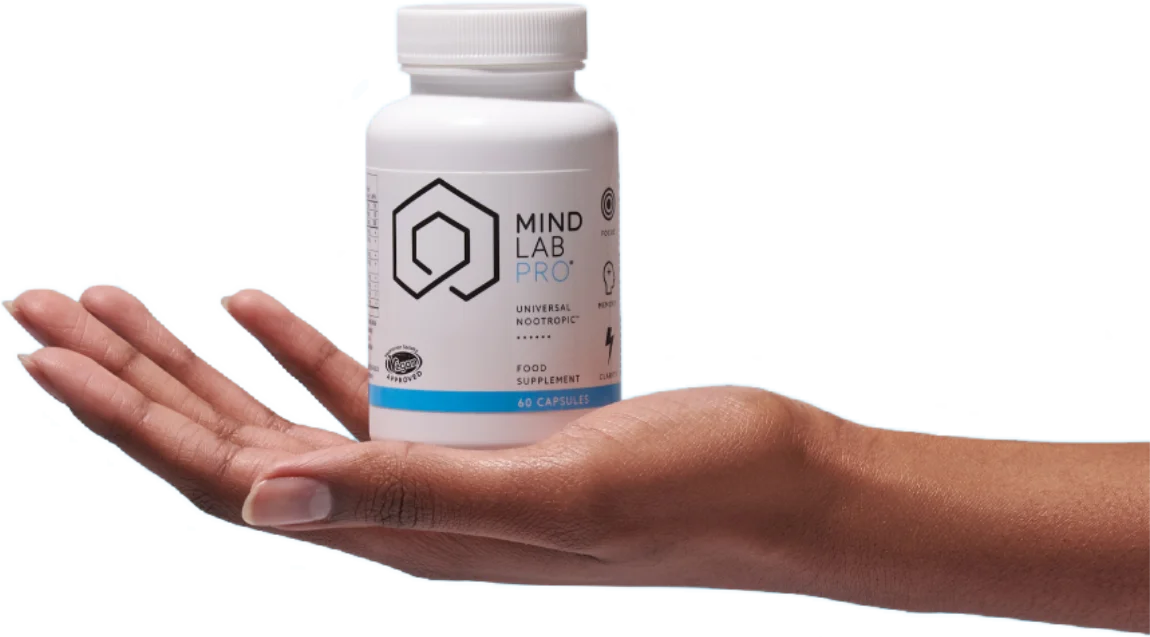Whether you're into boxing, running, cycling, martial arts, soccer, basketball, tennis, or rugby, you need endurance to excel. Nootropics for endurance may help athletes across all sports to start stronger and finish stronger by enhancing focus, attention, intensity and more.
The brain is a small organ with a big energy bill: In adults, the brain is ~2% of body weight but accounts for ~20% of the body’s oxygen/calorie use at rest. Mental fatigue can measurably reduce endurance performance: A 2025 systematic review (Sports Medicine – Open) summarizes evidence that prior cognitively demanding tasks can impair subsequent physical performance, often alongside higher perceived effort.
If you are looking for safe, legal nootropics and supplements that can boost endurance—supporting energy, stamina and athletic performance—without sketchy stimulants—then this guide is for you. We're covering top ingredients and products to strengthen endurance performance. Let's get to it!
Key Takeaways
- Endurance vs. Stamina: While these terms are often used interchangeably, endurance typically refers to the body's ability to perform over long periods, especially in physical activities, while stamina focuses more on maintaining energy levels during continuous exertion.
- Physical Endurance Support: Creatine, Beta-Alanine, and Nitric Oxide boosters like Beetroot Powder improve cardiovascular health, muscle endurance, and overall performance, enabling the body to last longer during physical exertion.
- Nootropic supplements like L-Theanine, Citicoline, and Rhodiola Rosea support focus, motivation, and stress management, helping to push through physical challenges without the cognitive fatigue that can impair performance.Energy and Recovery: Magnesium, B-vitamins, and Omega-3 fatty acids help prevent muscle cramps, boost recovery, and maintain energy levels, supporting overall endurance during both workouts and daily tasks.
- Endurance isn’t just “muscle fuel”—it’s also “effort regulation”: Reviews of mental fatigue in sport emphasize that performance drops are commonly linked to changes in perception of effort and executive control (your brain’s ability to hold pace, resist quitting impulses, and stay goal-directed).
Best nootropic supplements for endurance in 2026
Mind Lab Pro® (MLP) enhances both mental and physical endurance. By combining Bacopa Monnieri, Rhodiola Rosea, and N-Acetyl L-Tyrosine, it improves focus, reduces mental fatigue, regulates stress and supports sustained performance during endurance exercise. Helps keep you sharp and motivated during endurance exercise. Buy Mind Lab Pro® Now
Pre Lab Pro®. Featuring ingredients like Beetroot, L-Tyrosine, and Rhodiola Rosea, it boosts energy, enhances focus, and reduces fatigue during workouts. Its moderate-dose caffeine + L-Theanine stack provides clean, sustained energy and focus, without crashes or jitters. Perfect for endurance athletes. Buy Pre Lab Pro® Now
Performance Lab® Caffeine 2 combines caffeine with L-Theanine to enhance both physical and mental endurance. This "smart caffeine pill" provides focused energy without jitters or crashes, helping sustain energy levels during long workouts. You can also keep them in your pocket and pop as needed, 50 mg caffeine per capsule. Buy Performance Lab® Caffeine 2 Now
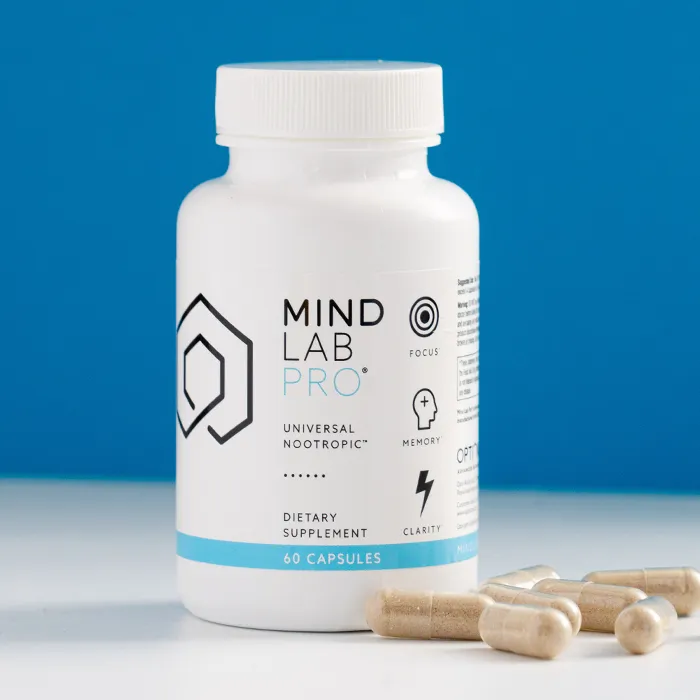
How Can Nootropics Improve Endurance?

Endurance sports requires you get the most out of your physical ability. But in order to push your body to its limits, you need to have a strong mind. In the gaming and endurance sports world, mental fortitude separates winners from losers.
That's where brain-boosting nootropics come in.
By enhancing the following cognitive functions that drive endurance, the best nootropics can help athletes to transcend fatigue and go the extra mile:
Focus and Concentration
Endurance activities require intense focus and concentration. For instance, a marathon runner seeking to complete 26.2 miles must block out mental distractions which hinder performance. The marathon runner must master attentional focus in order to succeed.
In 1998, Stevenson and Biddle classified attentional focus as external and internal. Both kinds of attentional focus have task-relevant and task-irrelevant sub-categories. The latter sub-category refers to outward and inward distractions which can compromise performance.
Here are some focus category and sub-category examples in the context of long-distance running:
- External task-relevant: strategy, water stations, route, weather, etc.
- External task-irrelevant: environment, spectators, scenery, etc.
- Internal task-relevant: thirst, fatigue, breathing, muscular discomfort, sweating, etc.
- External task-irrelevant: daydreams, religion, philosophy, etc.
For its part, the May 2017 issue of the Journal of Human Sport and Exercise recommends endurance athletes vary their attentional focus strategies:
Exercisers should be encouraged to adopt a variety of attentional focus types during exercise. However, it should be recognised that strategies may be associated with higher or lower levels of perceived exertion and psychological states such as satisfaction and enjoyment.(2)
The key takeaway: if an endurance athlete can exert himself physically and mentally, enjoy his sport to the fullest, and minimize external and internal distractions, he can succeed. Key nootropic ingredients can help him excel in the mental aspect.
Energy and Stamina
Endurance activities require great amounts of physical and mental energy and stamina. The aerobic system supplies energy to the body while it's in a state of exertion. Without this energy store, the body cannot sustain high-intensity endurance activity. In fact, per the January 1, 2008 issue of The Journal of Psychology:
"Elite athletic performance involves integration of muscular, cardiovascular, and neurological factors that function cooperatively to efficiently transfer the energy from aerobic and anaerobic ATP turnover into velocity and power."
For instance, a basketball player has to maintain peak mental energy and stamina. Basketball is an endurance sport which requires a combination of muscular endurance, power, and mental energy during a full 48-minute game. Meditating and taking key nootropics can help basketball players stay at the top of their mental game.
Motivation and Intensity
Endurance athletes also experience mental burnout. Researchers interviewed three cross-country skiers in January 2007. The study (which the International Journal of Sports Psychology published) revealed several factors for the skiers' burnout:
Excessive levels of motivation to succeed, rapid increases in performance at an early age, a perceived need to please others, and feelings of pressure and entrapment with restricted control were important contributing factors in the development of burnout. Our cases show links between training, overreaching, the overtraining syndrome, and burnout.(4)
Furthermore, the study says, "In our cases it was not as much the training load as the lack of recovery viewed as an important antecedent of burnout."
It's clear several physiological and psychological factors contribute to an endurance athlete's burnout. These individuals - especially professional athletes - can crash and burn mentally if they don't manage their situation accordingly. Including a reputable nootropic in their supplement stack should help increase their motivation and intensity.
More on nootropics for motivation
Stress Management
Regular, moderate endurance exercise helps a person keep stress levels in check and ward off many health issues.(5) When an individual combines this with healthy eating habits and enough sleep (ideally eight hours nightly), he should get optimal results.
An immediate change in quality and consistency of sleep. I highly recommend it.Stephanie B
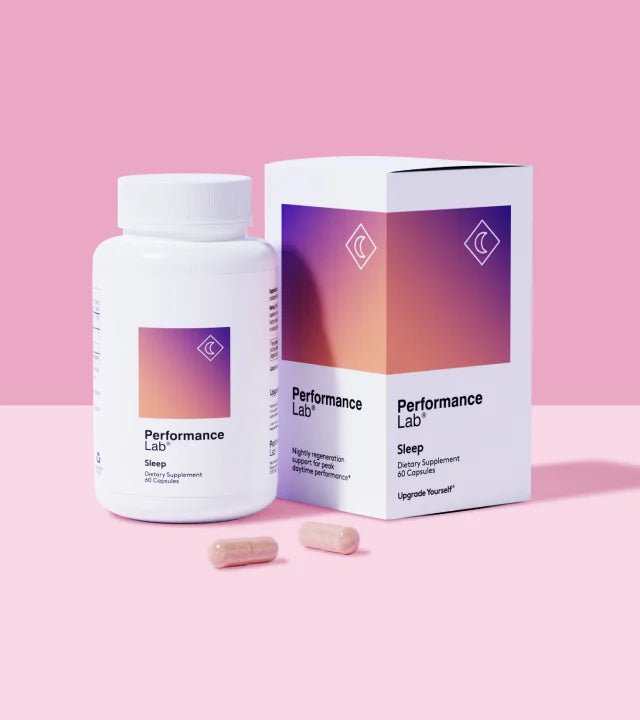
Unfortunately, taking things to the extreme is never a good idea. This includes exercise. Intense bouts of physical activity may result in high stress levels. Endurance athletes must cope with two stress-related issues which may take a serious toll on their health:
- Cortisol: This is the dreaded stress hormone from the adrenal gland. High cortisol levels can result in serious health issues.(6)
- Oxidative stress: This occurs when free radicals outnumber antioxidant levels in the body. Oxidative stress also has detrimental effects on the body.(7)
Endurance athletes can ward these off with nootropics rich in adaptogens and antioxidants. The reason: they help offset the detrimental effects of chronic stress and free radicals.
Exercise to Improve Mental Health
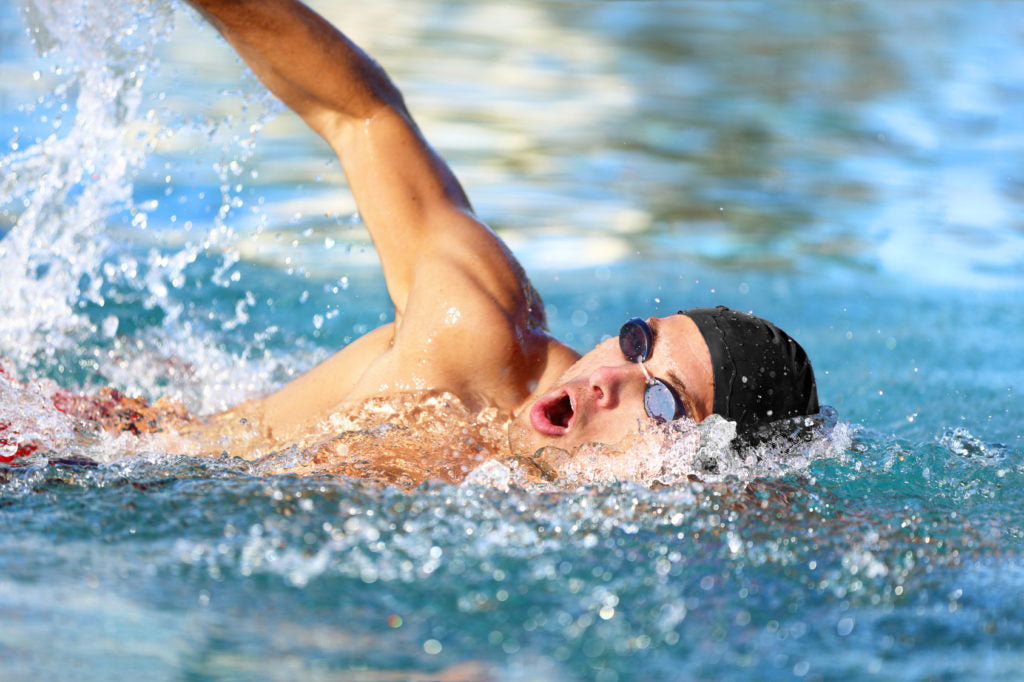
A study which researchers published in The Primary Care Companion to the Journal of Clinical Psychiatry (via NCBI.NLM.NIH.gov) in 2006 reveals the importance of endurance or aerobic exercise on mental health:
Aerobic exercises, including jogging, swimming, cycling, walking, gardening, and dancing, have been proven to reduce anxiety and depression. These improvements in mood are proposed to be caused by exercise-induced increase in blood circulation to the brain and by an influence on the hypothalamic-pituitary-adrenal (HPA) axis and, thus, on the physiologic reactivity to stress.
This physiologic influence is probably meditated by the communication of the HPA axis with several regions of the brain, including the limbic system, which controls motivation and mood; the amygdala, which generates fear in response to stress; and the hippocampus, which plays an important part in memory formation as well as in mood and motivation.(8)
If you're experiencing anxiety or any mental issue, performing endurance exercise regularly can help you. Choose a physical activity which you enjoy to help you improve not only your physical and mental health, but your overall well-being as well.
Nootropics for Endurance
Rhodiola rosea

Long used by athletes, Rhodiola rosea is an adaptogenic herb that boosts mind-body performance.
Endurance athletes experience high cortisol and oxidative stress levels because of their rigorous training demands. When they supplement with Rhodiola rosea, they are taking a natural herb that has been shown to help blunt stress responses and neutralize oxidative stress-generating free radicals.
To support this, the July 31, 2015 issue of Frontiers in Nutrition (via NCBI.NLM.NIH.gov) says, "Polyphenols in Rhodiola rosea may decrease the risk of acquiring virus infections following rigorous exercise by inhibiting oxidative stress."(9)
A highly regarded performance enhancer, Rhodiola rosea is often used to help maintain mental clarity and physical strength under stressful, high-pressure conditions -- a perfect combination for any endurance athlete.
More on Mind Lab Pro® Rhodiola rosea
N-Acetyl L-Tyrosine (NALT)

N-Acetyl L-Tyrosine is an acetylated form of l-tyrosine, an amino acid which helps enhance mood, cognitive function, and physical performance.
NALT helps sustain an endurance athlete's cognitive alertness during times of stress. The neurotransmitters dopamine and norepinephrine help an individual sustain mood and focus.
When an endurance athlete's stress levels increase, his dopamine and norepinephrine levels decrease. NALT helps negate the detrimental effects of stress on cognitive performance. As a result, an endurance athlete increases his or her focus, intensity, and productivity levels.
In addition, NALT may help athletes to push themselves harder during training and competition. The key here is NALT's ability to increase mental performance, alertness, and exercise tolerance.(11)
More on Mind Lab Pro® N-Acetyl L-Tyrosine
Citicoline

Citicoline (Cytidine 5'-diphosphocholine or CDP-choline) is a natural water-soluble compound which plays a key role in choline production. Choline acts as a precursor to the neurotransmitter acetylcholine (a brain chemical which is instrumental in learning, memory, and neuromuscular function).
Citicoline's ability to increase acetylcholine levels helps endurance athletes improve muscular performance. Plus, citicoline helps increase an athlete's mental endurance mainly to its key role in ATP energy production (it helps produce cytidine, a molecule and precursor to the nucleotide uridine which helps regulate ATP levels).(12)
More on Mind Lab Pro® Citicoline
L-Theanine

L-theanine is an amino acid and natural ingredient of green tea. It helps regulate brain wave activity for improved mood and mental clarity.
Because l-theanine helps increase brain wave activity, it helps an individual make the transition to a state of wakeful relaxation(13). As such, l-theanine is perfect for activities such as studying and researching.
In addition, l-theanine regulates the inhibitory neurotransmitters GABA, dopamine, and serotonin. Plus, it inhibits l-glutamate (a non-essential amino acid and excitatory neurotransmitter which may increase stress levels, agitation, and brain degeneration). The end result: a relaxed state without the unwanted drowsiness and sleepiness.
Endurance athletes such as rugby players may feel pensive and anxious before a match. When they supplement with l-theanine, they will feel a sense of mental calmness so they can produce at a higher level. L-theanine also helps offset the stimulatory effects of caffeine, a substance which many endurance athletes take.(14)
More on Mind Lab® Pro L-Theanine
Phosphatidylserine (PS)

Phosphatidylserine (PS) is a phospholipid and cell membrane constituent. These membranes perform several vital neurological functions:
- Synthesize neurotransmitters
- Send and receive electrical impulses
- Regulate brain cells' nutrient and oxygen absorption
- Block toxins from entering brain cells
- Facilitate immune system communication
For the active endurance athlete, PS helps increase brain energy levels and enhance cognitive function before exercise.
According to the October 21, 2011 issue of the Journal of the International Society of Sports Nutrition (via NCBI.NLM.NIH.gov):,
"PS supplementation significantly increased cognitive function prior to exercise" which "could benefit athletes and non-athletes alike."(15)
On that note, if an endurance athlete such as a swimmer or skater needs a mental wake-up call before competition, phosphatidylserine is a great alternative.
More on Mind Lab Pro® Phosphatidylserine
Maritime Pine Bark Extract

Maritime Pine Bark is a natural nitric oxide (NO) booster. As it increases blood levels of NO, it relaxes the endothelial tissues that line blood vessels. As a result, Maritime Pine Bark Extract functions as a circulation booster.
In Mind Lab Pro®, Maritime Pine Bark Extract's circulation-boosting support helps to promote robust blood flow to the brain, which in turn helps energize mental performance. Maritime Pine Bark Extract is also great as a sports nutrient because it encourages blood flow to the muscles.
By supporting both cerebral circulation and muscle circulation, Maritime Pine Bark Extract functions as a 2X endurance enhancer that is ideal for enhancing performance across all athletic activities.
More on Mind Lab Pro® Maritime Pine Bark Extract
Beetroot
Beetroot is a powerful natural supplement that has gained popularity in the endurance community due to its ability to enhance athletic performance.
Rich in nitrates, beetroot helps increase nitric oxide levels in the body, which improves blood flow and oxygen delivery to muscles during physical exertion. This results in better endurance, reduced fatigue, and improved exercise efficiency.
Studies have shown that beetroot juice can increase stamina, allowing athletes to perform at higher intensities for longer durations.
Its ability to enhance oxygen utilization is particularly beneficial for endurance sports like running, cycling, and swimming. By promoting better circulation and reducing the effort needed for prolonged activities, beetroot is a natural and effective option for boosting endurance and optimizing performance.
Caffeine

Caffeine is one of the most widely used and effective supplements for enhancing endurance.
It works by stimulating the central nervous system, which helps increase alertness, focus, and mental energy. This stimulation can reduce the perception of effort during prolonged physical activities, allowing athletes to push harder and for longer periods.
Caffeine also boosts the release of adrenaline, which can enhance physical performance, improve fat oxidation, and spare glycogen stores, helping to delay fatigue.
Numerous studies have shown that caffeine can improve endurance performance in endurance sports such as running, cycling, and swimming, making it a go-to supplement for athletes aiming to improve their stamina.
Its energizing effects, combined with its ability to heighten focus and reduce perceived exertion, make caffeine a powerful tool for both physical and mental endurance.
Setria® Performance Blend
Setria® Performance Blend is a specialized ingredient designed to enhance endurance by supporting the body's natural ability to produce and utilize energy. It is a patented form of L-Glutathione, a powerful antioxidant that helps reduce oxidative stress and improve recovery times during intense physical exertion.
Setria® supports nitric oxide production, which improves blood flow and oxygen delivery to muscles, enhancing stamina and reducing fatigue during long workouts or endurance activities.
By boosting cellular energy production and protecting against oxidative damage, Setria® helps athletes sustain performance levels, recover faster, and perform at their best over extended periods.
This blend is particularly beneficial for improving endurance in both aerobic and anaerobic exercises, making it an excellent addition to any supplement stack for athletes looking to enhance their overall stamina and performance.
Best Nootropics for Endurance & Athletic Performance in 2026
Mind Lab Pro®: Best Nootropics for endurance in one stack.

Mind Lab Pro® is an advanced nootropic supplement that supports both mental and physical endurance.
The MLP Formula: Citicoline (CDP Choline) dosage 250mg per serving, Phosphatidylserine (PS) 100mg (from sunflower lecithin), Bacopa monnieri 150mg (24% bacosides, 9 bioactives), Organic Lion's Mane Mushroom 500mg (fruit and mycelium), Maritime Pine Bark Extract 75mg (Standardized to 95% proanthocyanidins), N-Acetyl L-Tyrosine 175mg, L-Theanine 100mg per serving, Rhodiola rosea 50mg (Standardized to 3% rosavins and 1% salidrosides), NutriGenesis® Vitamin B6 (2.5 mg), Vitamin B9 (100 mcg), Vitamin B12 (7.5 mcg)
Its unique formula stacks powerhouse nootropics for a whole-brain boost, including cognitive benefits for endurance athletes:
- natural stim-free mental energy
- stress resistance support
- focus and concentration
- motivation and mood
Stim-free, clean and healthy for the brain, MLP is an excellent choice for those looking to maximize both mental endurance and physical performance. Whether you're pushing through a grueling workout or a demanding task, Mind Lab Pro® helps you maintain peak performance without the crash associated with traditional stimulants.
Mind Lab Pro®: A Research-Backed Supplement.
Two clinical studies have shown how Mind Lab Pro® improves cognitive performance across multiple mental functions:
- Subjects who took Mind Lab Pro® for 30 days showed improved performance in tasks measuring simple reaction time (SRT), choice reaction time (CRT), and anticipation.(17)
- Subjects who took MLP in showed improved performanec across several different types of memory, including auditory and visual memory, plus immediate and delayed recall.(18)
- Healthy adults taking MLP were shown to have enhanced coordination between different brain regions, which researchers suggested may explain some of its cognitive effects.(19)
I was skeptical at first, but I can say that I feel sharper and more clear minded than as long as I can remember.John Y
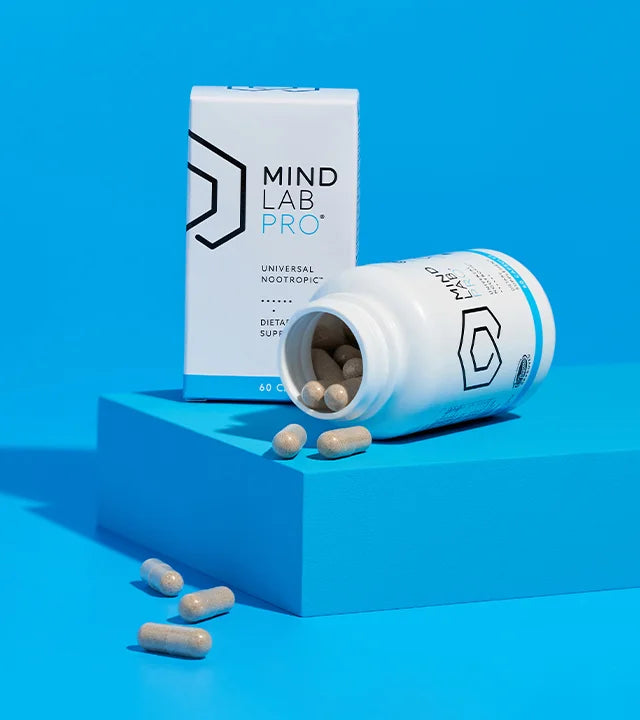
Pre Lab Pro®: Best Pre-Workout for endurance

The "world's smartest pre-workout nutrition", it is designed for sharp cognitive function as well as improved athletic performance overall, including endurance.
The Pre Lab Pro® formula: Red Beetroot Powder, 1500 mg Setria® Performance Blend, 2200 mg Natural Caffeine, 80 mg L-Theanine, 160 mg L-Tyrosine, 400 mg NutriGenesis® vitamins & minerals Vitamin D3, 500 iu Potassium, 49.5 mg Iron, 2.5 mg Riboflavin (Vitamin B2) 500 mcg Vitamin B6, 750 MCG Folate (Vitamin B9), 167 mcg DFE Vitamin B12, 2 MCG Himalayan Pink Salt, 500 mg
Pre Lab Pro® is an ideal pre-workout for endurance athletes because it combines classic sports nutrients with advanced nootropics.
It works via a nitric oxide rush from beetroot and Setria that unleashes robust blood flow to the muscles and brain, which in turn helps intensity, energy and focus. It also supplies a moderate (80 mg) dose of caffeine plus sport nutrients, nootropics and hydration enhancers for an overall gym boost.
Pre Lab Pro® is an excellent choice for athletes who prioritize clean labels, balanced stimulation and natural performance enhancement.
It also mixes up easy into a natural berry-flavored sports drink that tastes nice.
Definitely a nice clean energy, makes a big difference in my workouts. I like the fact it doesn't have artificial flavors.David F
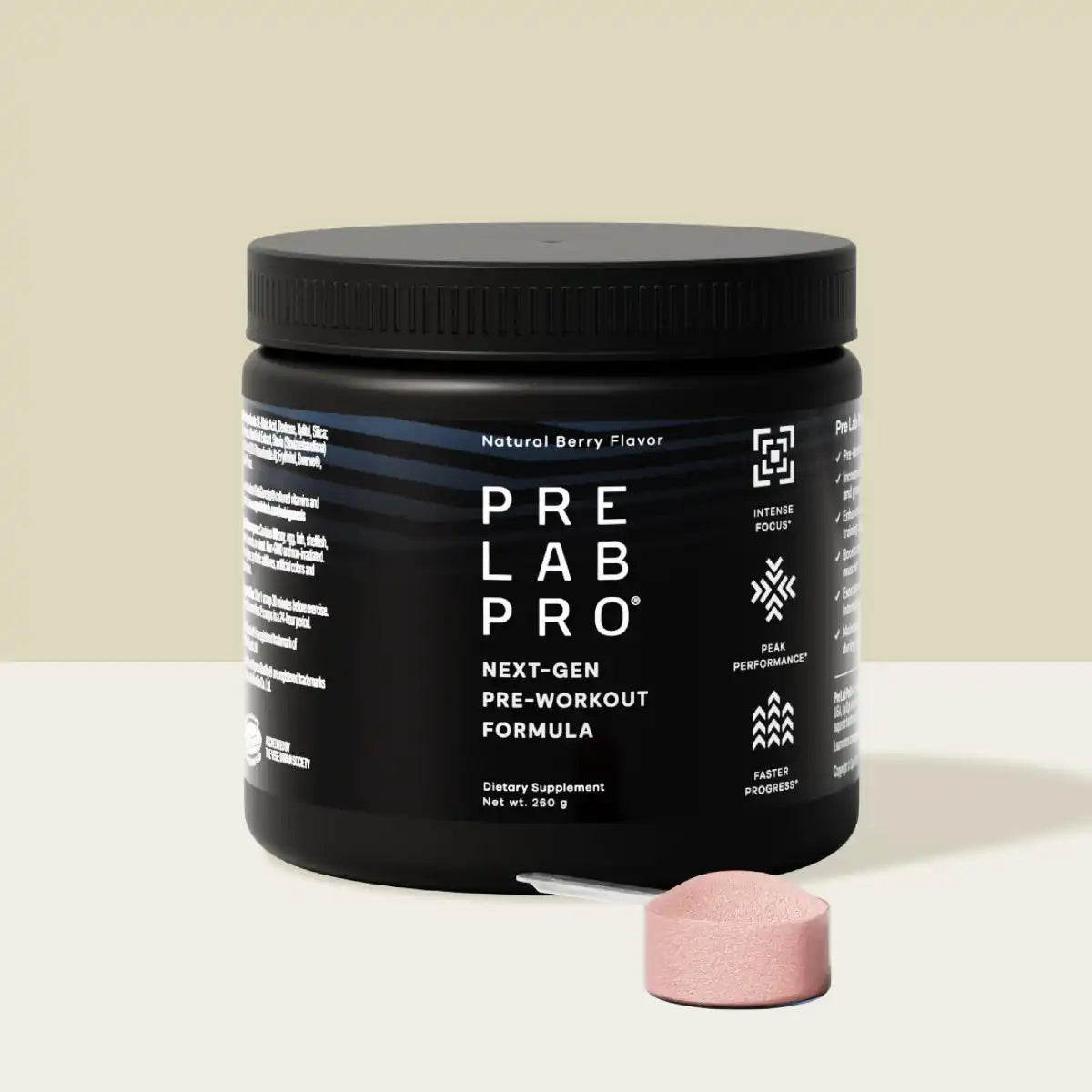
Performance Lab® Caffeine 2: Best Caffeine Pill for Endurance athletes

Performance Lab® Caffeine 2 is a powerful nootropic supplement designed to enhance both physical and mental endurance. Its unique formula combines caffeine with L-Theanine to provide a smooth, focused energy boost without the jitters or crashes often associated with traditional caffeine products.
Caffeine 2 ingredients list: Caffeine 50 mg; L-Theanine 100 mg; NutriGenesis® Caffeine Balance B-Complex: 500mcg Riboflavin, 50mcg Vitamin B6, 167mcg Folate, 2mcg Vitamin B12 50 mg; 250mg L-Tyrosine
Caffeine 2 benefits for endurance
- Precision-dose for just the right stimulation for endurance without jitters, side effects or crashes
- Balances caffeine energy with the "alert relaxation" effects of L-Theanine
- Helps with drive, motivation and mood during endurance exercise
Caffeine is a legendary sports nutrient. Performance Lab Caffeine 2 makes it even better. This ultramodern formula tunes caffeine for athletic performance, especially when it comes to endurance -- for cleaner, calmer and more sustained athletic performance.
Buy Performance Lab® Caffeine 2 Now
Great stuff! I won't take caffeine without the L-theanine. This is the perfect blend and also has added B vitamins!Cindy S
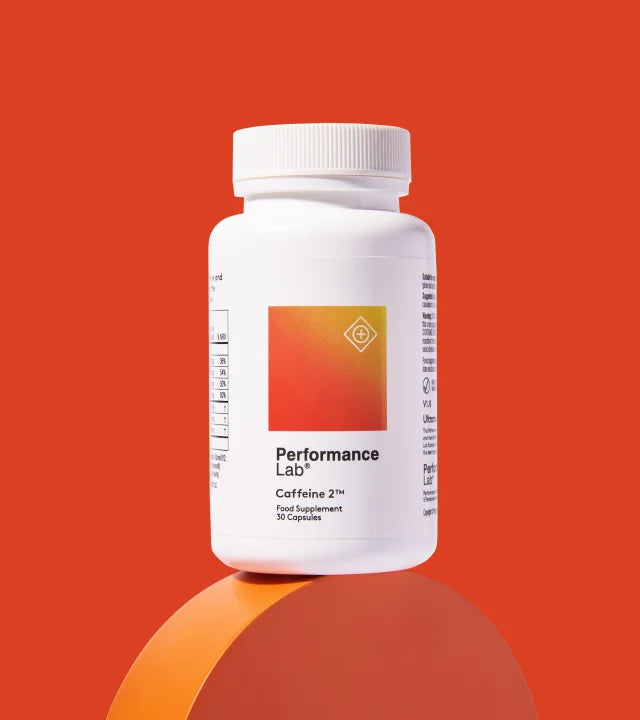
This combination not only sharpens focus and concentration but also helps sustain energy levels throughout long workouts or demanding mental tasks.
By supporting cognitive performance and reducing stress, Caffeine 2 allows athletes to push through physical fatigue while staying mentally sharp. Its low-dose increments help you fine-tune caffeine intake for peak benefits without the overstimulation commonly found in other caffeine supplements.
Summary
Combining supplements for both mental and physical endurance can enhance overall performance.
- Nootropics target cognitive functions, increasing focus and motivation;
- Physical endurance sport nutrients support muscle function, energy, and recovery;
- Caffeine helps to ward off fatigue when used correctly, especially combined with L-Theanine
Together, they create a powerful foundation for sustained performance in any endurance activity.
Supporting intensity, energy, focus, attention, motivation and more, Mind Lab Pro® supplies some of the best nootropics for endurance.
Endurance athletes need to stay mentally sharp so they can perform at peak levels consistently. Nootropics can help these individuals boost their cognitive function for better long-term results.
The world's first Universal Nootropic™, Mind Lab Pro® nootropics may help with various aspects of endurance, making it a strong choice for mental and physical performance.
Together, Mind Lab Pro® + Pre Lab Pro® form a powerful broad-spectrum stack for superior athletic endurance in both body and mind.
Learn about all Performance Lab® formulas here
References
- Morici, G., et al. (2016). Endurance training: Is it bad for you? Breathe (Sheff), 12(2), 140–147. Link
- Emad, M., et al. (2017). Attentional focus strategies used by regular exercisers and their relationship with perceived exertion, enjoyment, and satisfaction. Journal of Human Sport and Exercise, 12(1), 106–118. Link
- Joyner, M. J., & Coyle, E. F. (2008). Endurance exercise performance: The physiology of champions. The Journal of Physiology, 586(Pt 1), 35–44. Link
- Gustafsson, H., et al. (2007). The process of burnout: A multiple case study of three elite endurance athletes. International Journal of Sport Psychology, 38, 388–416. Link
- Huang, C.-J., et al. (2013). Cardiovascular reactivity, stress, and physical activity. Frontiers in Physiology, 4, 314. Link
- Maglione-Garves, C. A., et al. (n.d.). Cortisol connection: Tips on managing stress and weight. UNM.edu. Link
- Hybertson, B. M., et al. (2011). Oxidative stress in health and disease: The therapeutic potential of Nrf2 activation. Molecular Aspects of Medicine, 32(4–6), 234–246. Link
- Sharma, A. (2006). Exercise for mental health. Primary Care Companion to The Journal of Clinical Psychiatry, 8(2), 106. Link
- Ahmed, M., et al. (2015). Rhodiola rosea exerts antiviral activity in athletes following a competitive marathon race. Frontiers in Nutrition, 2, 24. Link
- Mandrola, J. (2010, March 29). A cautionary note to my endurance athlete brethren. DrJohnM.org. Link
- Avraham, Y., et al. (2001). Tyrosine improves appetite, cognition, and exercise tolerance in activity anorexia. Medicine & Science in Sports & Exercise, 33(12), 2104–2110. Link
- Silveri, M. M., et al. (2008). Citicoline enhances frontal lobe bioenergetics as measured by phosphorus magnetic resonance spectroscopy. NMR in Biomedicine, 21(10), 1066–1075. Link
- Nobre, A. C., et al. (2008). L-theanine, a natural constituent in tea, and its effect on mental state. Asia Pacific Journal of Clinical Nutrition, 17(Suppl 1), 167–168. Link
- Mayo Clinic. (2017, March 8). Caffeine: How much is too much? MayoClinic.org. Link
- Parker, A. G., et al. (2011). The effects of IQPLUS Focus on cognitive function, mood, and endocrine response before and following acute exercise. Journal of the International Society of Sports Nutrition, 8, 16. Link
- Smith, A. D., & Refsum, H. (2016). Homocysteine, B vitamins, and cognitive impairment. Annual Review of Nutrition, 36(1), 211–239. Link
- Utley, A., Gonzalez, Y., & Imboden, C. A. (2023). The efficacy of a nootropic supplement on information processing in adults: A double blind, placebo controlled study. Biomed J Sci & Tech Res, 49(1). Link
- Abbott-Imboden, C., Gonzalez, Y., & Utley, A. (2023). Efficacy of the nootropic supplement Mind Lab Pro on memory in adults: Double blind, placebo-controlled study. Human Psychopharmacology: Clinical and Experimental, e2872. Link
- O’Reilly, D., Bolam, J., Delis, I., & Utley, A. (2025). Neural mechanisms of cognitive enhancement with a nootropic supplement. Brain Sciences, 15(3), 226. Link
* Please note that many Pine Bark Extract studies include data and citations which are specific to Pycnogenol®, which is not an ingredient of Mind Lab Pro®.

